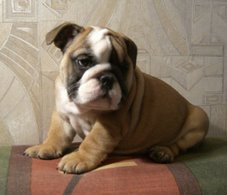Permethrin is an insect repellant. For humans, we used to use DEET. Now, you can buy permethrin as a clothing treatment. It's an insecticide, whereas DEET is a repellant. Permethrin kills insects on contact. But you don't want to get too much on your skin.
So I thought: Permethrin is safe enough for some kind of human use, and it's a *lot* cheaper than Frontline. I should give it a shot.
Until I did some research:
"Farnam's Bio Spot Flea & Tick Almost Killed Our Dog."
Apparently, a substantial number of dogs experience severe allergic or harmful reactions to permethrin, some of them experiences seizures from exposure.
Now, I know this isn't all dogs--and there are a lot of dogs out there. And my food vendor uses it and recommends the product. But is it really worth the risk? I decided no, and have been sticking with Frontline. I have decided, though, to use a lower dosage. Ruki's 37 lbs, but she's a bulldog, so has less surface area than your typical 22+ lb dog. So I use the "up to 22 lbs" dosage, which is half the dose of the 22+ lb product. And we won't use it at all during the winter.
I can see that we probably took the same chance when we first applied Frontline, but it appears to be the best of the pack. I wish there were a safer product, but it looks like there just isn't. If you want your pets free from fleas, ticks, and the problems and diseases associated with them, you need to use these chemicals, and it looks like Frontline's the safest (but most expensive) one out there.
Here's another article from the National Resource Defense Council, generally about flea/tick treatments, and the kinds that are being banned from the market:
Pet Products May Harm Both Pets and Humans
The simple truth, however, is that the poisons in many of these products are not safe, either for pets or humans. Government regulation of these products has been sketchy, and testing of their impact in the home has been inadequate. The result is that many of the products sold by the millions in grocery, drug and pet supply stores, even when applied as instructed on the box, can cause serious health consequences to pets and humans.
The main culprits are products that rely on a family of chemicals called organophosphates. One of these, tetrachlorvinphos, is still found in stores. Six others were removed from the market, one by one, from 2000 through 2006: chlorpyrifos, dichlorvos, phosmet, naled, diazinon and malathion. Many pet owners may still have leftover supplies of products containing these chemicals in their homes. They were used in brands marketed under a variety of names, including Alco, Americare, Beaphar, Double Duty, Ford's, Freedom Five, Happy Jack, Hartz, Hopkins, Kill-Ko, Protection, Rabon, Riverdale, Sergeant, Unicorn, Vet-Kem, Victory and Zema. Another family of chemicals, called carbamates, is also of potential concern. The two most common carbamate chemicals used in pet products are called carbaryl and propoxur.

No comments:
Post a Comment